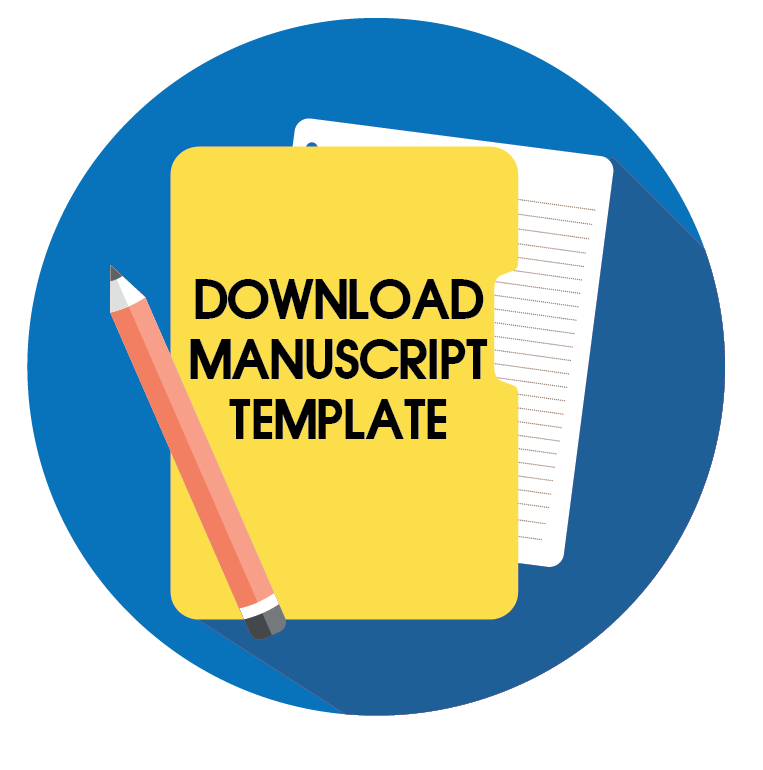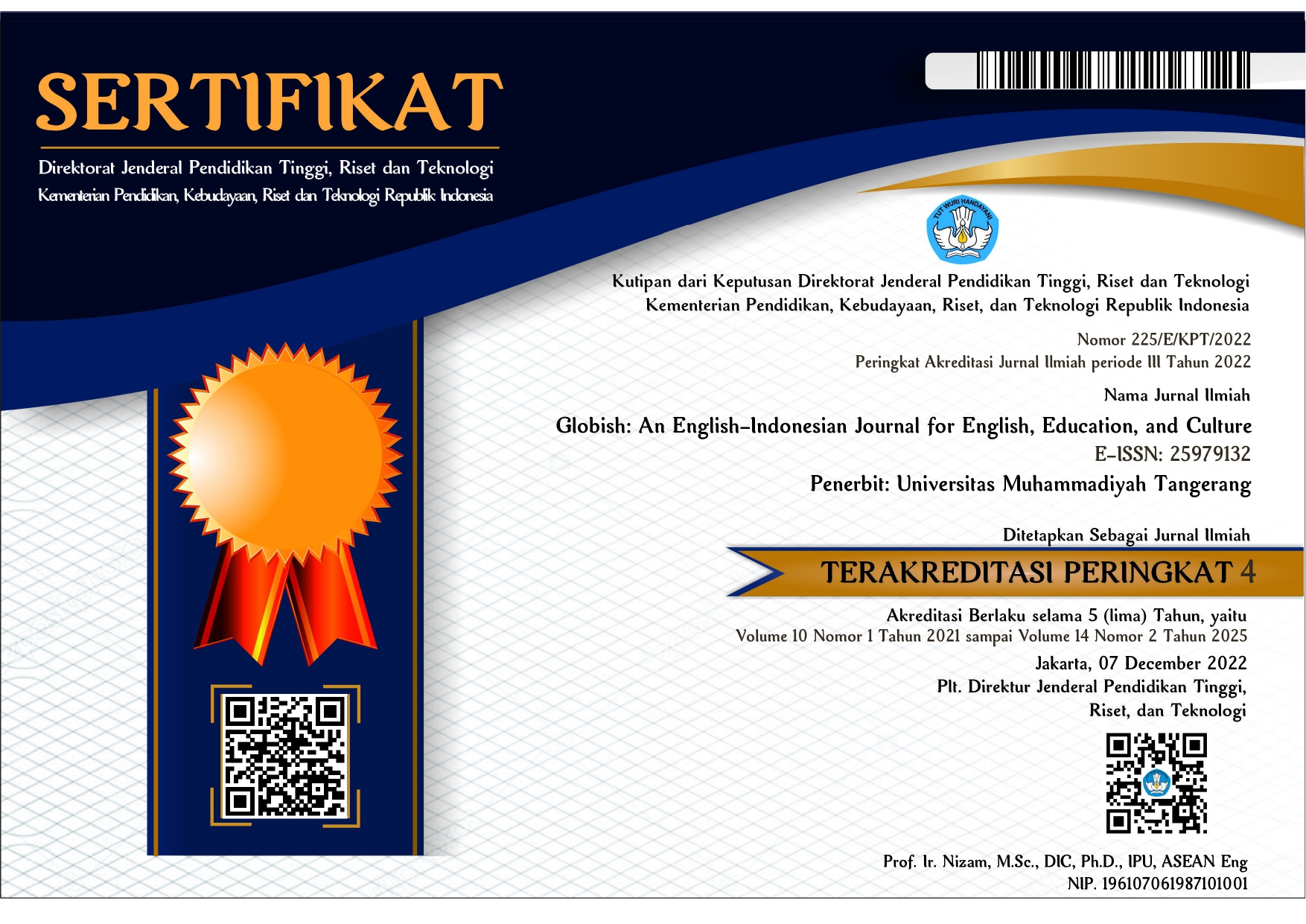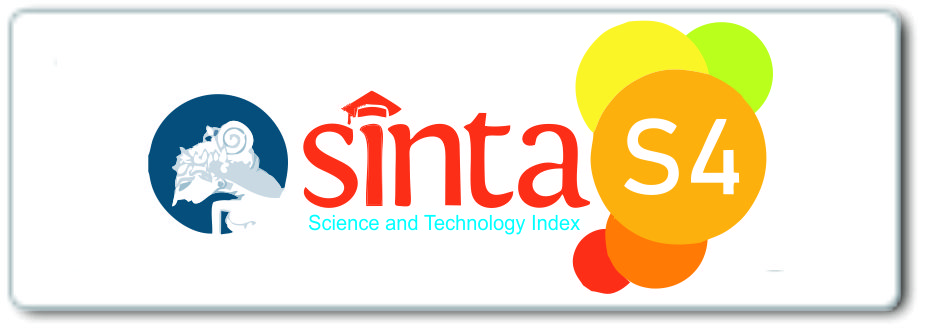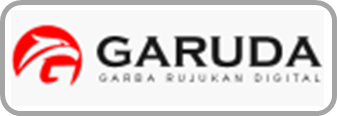An Evaluation of EFL Textbooks Entitled “New Access English for Academic Purposes” for Undergraduate Students
Abstract
The present study is a case specific attempt to explore the effectiveness of English as a foreign language textbooks entitled New Access English for Academic Purposes Revised Edition on the students active learning in EFL situation. The current research underpinned an indepth approach which led to descriptive analysis data collection through a textbook evaluation checklist. It was addressed to 40 undergraduate students in EFL classroom. Textbook evaluation checklist was built on both close and open-ended questions which were comprehensively analyzed separately. The findings revealed that the textbook contributes much advantages on the students active learning, be able to stimulate students in the EFL learning situations, and assist the EFL teachers or lecturers in designing sistematically their classroom learning activities based on the learning objectives and expectation written in the textbook. As explained in the findings of research that some students feel encouraged in terms of utilizing the designed textbook in the language classroom, they thought the EFL textbook is able to improve their English language skills especially in reading, listening, writing, speaking and grammar understanding. Although in the other side, the EFL learners responded that there would be better if the author of textbook tried to make some need analysis for improving and formulating much better language learning materials. Additionally, the EFL lecturers feel assisted after using the textbook for EFL students to construct effectively their course syllabus and language learning activities in the classroom.
Full Text:
PDFReferences
Akbar, R. (2016). An Analysis of Selected Eleventh Grade English Textbooks. Journal of English and Education, 4(1), 109-126
Bryd, P. (2001). Textbooks: Evaluation for selection and analysis for implementation. In M. Celce-Murcia (Ed.) Teaching English as a second or a foreign language (3rd ed.), pp. 415-427. Boston: Hienle & Hienle Publishers.
Cunningsworth, A. (1995). Choosing your coursebook. Oxford: Heinmann.
Demir, Y., & Ertas, A. (2014). A Suggested Eclectic Checklist for ELT Coursebook Evaluation. The Reading Matrix, 14(2), 243-252
Ellis, R. (1997). The empirical evaluation of language teaching materials. ELT Journal, 51(1), (36-42).
Huthchinson, T. (1987). What is underneath? An interactive view of the materials evaluation. In L. E. Sheldon (ed.), ELT textbooks and materials: Problems in evaluation and development, (pp. 37-44), Oxford: Modern English Publications.
Litz, D. (2001). Textbook Evaluation and ELT Management: A South Korean Case Study. Retrieved January 31, 2018, from https://www.asian-efl-journal.com/Litz_thesis.pdf
Prabasari, N. (2017). An Evaluation on an English Textbook: Interactive English for the Seventh Grade of Junior High School. English Language Teaching Journal. Vol 6, No 1, 27-35.
Richards, J. C. (2001). The role of textbooks in a language program. Cambridge University Press
Rynanta, C.A.R, et all. (2013). Content Analysis on The English Textbook Entitled ‘English In Mind Starter (Student’s Book)”. Retrieved February 13, 2018, from http://jurnal-online.um.ac.id/data/artikel/artikelCC81D1EBABB7A5D03EFE626A478813E1.pdf
Sheldon, L. E. (1988). Evaluating ELT textbooks and materials. ELT journal, 42(4), 237-246.
Tomlinson, B (1998). Glossary of basic terms for materials development in language teaching and introduction. In B. Tomlinson ( ed.), Materials development in language teaching. (pp. 1-24). Cambridge: Cambridge University Press.
Wong, R. M. H. (2009). Developing criteria for textbook evaluation. TESL Reporter, 42(1), 52-75.
DOI: http://dx.doi.org/10.31000/globish.v8i2.1759
Article Metrics
Abstract - 2373 PDF - 743Refbacks
- There are currently no refbacks.
Globish
Program Studi Pendidikan Bahasa Inggris
Fakultas Keguruan dan Ilmu Pendidikan
Universitas Muhammadiyah Tangerang
Jl. Perintis Kemerdekaan I/33, Cikokol
Kota Tangerang, Indonesia
e-mail: globish_journal@umt.ac.id
Globish (p-ISSN: 2301-9913 | e-ISSN: 2301-9913) is licensed under a Creative Commons Attribution-ShareAlike 4.0 International License.









